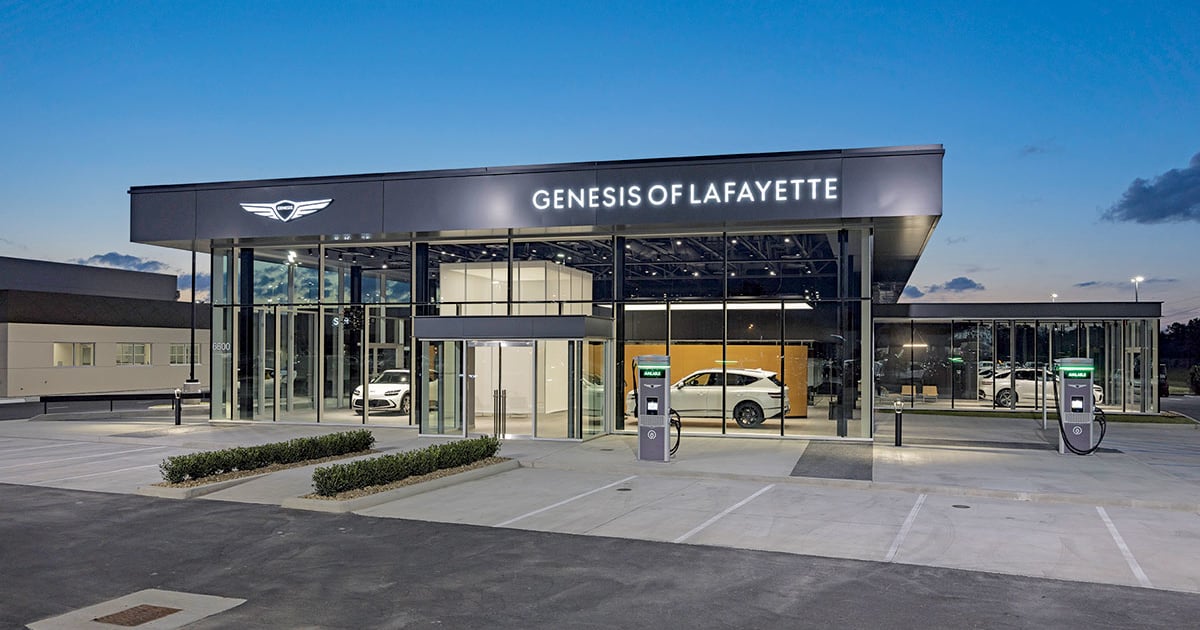
Hyundai Motor expects the Genesis division to become a heavyweight luxury player as it continues to set sales records and attract both luxury and EV shoppers from competing brands.
“We’re going to get to 100,000 relatively soon, probably before the end of the decade,” Hyundai and Genesis Motor North America CEO Jose Muñoz told Automotive News at the New York auto show this month.
“We’re going step by step, but we definitely see the potential,” he said.
Genesis set a record in March, increasing 23 percent over its year-ago results, topping 5,656 sales, according to the Automotive News Data Center. In the first quarter, Genesis sales jumped 18 percent to 13,769 — another record. And in an overall market down nearly 8 percent, Genesis closed 2022 up 14 percent with 56,410 sales, setting an annual record for the make.
“It doesn’t come without a strong effort every single time,” Muñoz said about Genesis’ continued sales records, noting the brand remains “hungry.”
“Hitting 100,000 units by the end of the decade is achievable and it is in line with our forecast for the brand,” said Ed Kim, president and chief analyst for AutoPacific. The research firm only forecasts five years out but predicts Genesis will hit 90,000 sales by 2028.
A six-figure annual volume would put Genesis at the heels of other established premium brands like Acura and Audi. Acura closed 2022 with sales of 102,306; Audi landed at 186,875.
Meeting or surpassing Lexus would be a loftier goal. That luxury segment player sold 258,704 vehicles last year.
“Lexus is so well established and has the association with Toyota that not only attracts consumers, but plays into the brand’s impressive customer loyalty,” Kim said. “That was built up over years, and Genesis will need time to earn that level of brand power.”
Stephanie Brinley, associate director, auto intelligence for S&P Global Mobility, said having Hyundai’s support does give Genesis a “massive advantage,” and is something both Acura and Lexus also had in Honda and Toyota when they started, Brinley said.
The luxury image Genesis has been working to advance — which includes opening high-style retail facilities with white glove sales and service — also needs refinement.
“Until recently, Genesis was a brand with fantastic product but not much of a brand identity or story,” Kim said. “Now, Genesis is clearly using design and its Korean heritage as two main calling cards.
“While its vehicles are solid values, they’re not pushing a value message for the brand as they are clearly trying to make Genesis aspirational and desirable in its own right,” he said.
Hitting six figures appears possible, but Genesis also faces hurdles as the industry recovers from the pandemic and microchip shortage.
Economic headwinds such as inflation and overall vehicle affordability, coupled with a lower number of lease offerings, will slow down market activity, Brinley said.
“U.S. sales are growing compared to 2022, 2021 and 2020, but we’re not seeing a 17-million-unit year anytime soon,” she said. All brands will be fighting a piece of a smaller pie.
The industry is also making a dramatic shift to electrification, and for Genesis, that is a declared priority.
In the past 12 months, the brand has launched three EVs: the electric version of the G80 sedan, the electric-only GV60 compact crossover and, most recently, the Electrified GV70, which is the first Genesis to be built in the U.S. as well as the first domestically produced EV from Hyundai Motor Group.
Despite a rush for automakers to produce EVs, the rate at which consumers will adopt them is not yet clear.
“If consumers don’t take on EVs as quickly as we would like, that could slow Genesis down,” Brinley said.
Kim agrees: “A challenge, and one that is to some small degree out of Genesis’ control, is the market’s willingness to adopt EVs.”
But carving out a space for its EVs in the luxury space presents a different opportunity.
“Genesis’ relative newness can be an advantage here since there is no ICE heritage that longtime customers may be loyal to,” Kim said.
According to data from AutoPacific’s Future Attribute Demand Study, 60 percent of luxury brand intenders want something other than a traditional gasoline engine in their next vehicle.
“If Genesis can successfully establish its desirability among luxury EV customers, it could be well positioned to ride the wave of luxury EV adoption in the coming years,” he said.
Muñoz said Genesis will benefit the most from the $5.5 billion electric vehicle and battery plant Hyundai Motor is building outside Savannah, Ga., that will produce nameplates for Hyundai, Genesis and Kia. By 2030, Genesis intends to be launching only EVs.
The factory, called the Metaplant, will have the capacity to build up to 300,000 EVs in the first phase, then up to 500,000, depending on demand.
“That’s huge – if Genesis will get most of that production, then that’s part of the way to get there,” Brinley said.